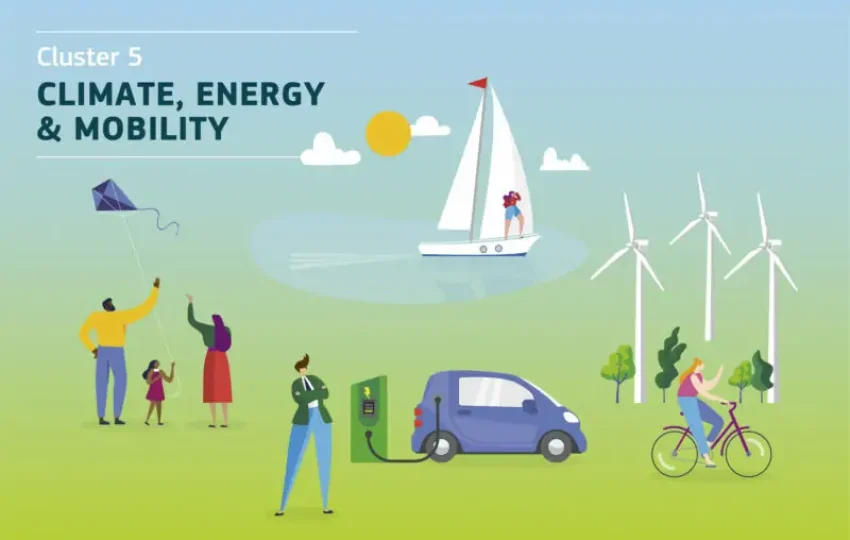In our effort to help you get to know the EU agencies and their important work for the European world, here is the second part of our guide regarding EU agencies across Europe. All the information below was found on the official publications website of the European Union.
1. EUROPEAN AVIATION SAFETY AGENCY (EASA)
Air transport is one of the safest forms of travel. As air traffic continues to grow, common Europe-wide efforts are needed to keep air transport safe and sustainable. EASA develops such common safety and environmental rules. It monitors the implementation of standards through inspections in the Member States. It also provides technical expertise and training to the aviation system. The agency works hand-in-hand with national aviation authorities, which each have their own role to play in EU aviation.
Through EASA, Europe centralizes the process of authorizing non-EU airlines performing commercial air transport operations into the EU’s airspace. This means a single safety authorization is issued centrally by EASA, replacing the various schemes that EASA Member States have used up to now. EASA only assesses the safety of foreign airlines. Operating permits will continue to be issued by national authorities.
Its contribution to EU aviation safety can be seen the low level of fatalities: Since 2007 there has not been a year with over one fatal accident involving an airplane operated by an EASA Member State.
The agency was established in 2002 and is located in Cologne, Germany
2. EUROPEAN BANKING AUTHORITY (EBA)
The EBA helps maintain financial stability in the EU by safeguarding the integrity and efficiency of the banking sector. It creates common rules for all EU banks and provides tools for supervisors to consistently monitor banks across the single market.
Through its Single Rule Book, it helps harmonize regulation, promoting a level playing field across the 28 Member States, as well as transparency and stability. It also monitors market developments, in order to identify potential risks.
The EBA also supports the current major restructuring of banks to strengthen their business and has a prominent role in the EU-wide Stress Test exercise: it defines the common methodology for testing the resilience of EU banks in case of the financial crisis.
Protecting EU consumers is in its mandate too. The EBA monitors risks arising from financial innovation in key areas for consumers: mortgages, credit, savings products, credit cards, and payment services, as well as new emerging issues such as virtual currencies.
By ensuring banks are transparent and better capitalized, the EBA makes it easier for investors to provide finance and ensures that banks focus on their core purpose: providing money to individuals and businesses to invest and grow across the EU.
The agency was established in 2011 and is located in London, United Kingdom
3. EUROPEAN CENTER FOR DISEASE PREVENTION AND CONTROL (ECDC)
The ECDC strengthens Europe’s defences against infectious diseases. The Centre gathers, analyses and disseminates data on over 50 communicable diseases and conditions. As Europe’s public health agency, ECDC puts science in the hands of decision-makers: one of the Centre’s most important tasks is to offer scientific advice and guidance to the Member States. ECDC supports the EU’s Early Warning and Response System on public health threats 365 days a year, summarising the main findings in its weekly online bulletin.
ECDC also provides extensive training and preparedness activities to Member States and, when called on, offers hands-on technical support to the European Commission and Member States.
An example of an important health EU-wide initiative coordinated by ECDC is European Antibiotic Awareness Day (EAAD). It aims to provide a platform and support for national campaigns about prudent antibiotic use. Since 2008, the number of European countries participating in EAAD has increased from year to year with 45 countries in 2013 organising national EAAD events and campaigns during the week of 18 November.
The agency was established in 2005 and is located in Stockholm, Sweden
4. EUROPEAN CENTER FOR THE DEVELOPMENT OF VOCATIONAL TRAINING (Cedefop)
Cedefop’s research, analyses and forecasts help the European Commission, the Member States and social partners to decide how vocational education and training should respond to the labour market’s changing needs. Cedefop’s skill forecasts show that between now and 2025 around 90% of job opportunities in the EU will be to replace people who leave their jobs, many of whom will retire in the next decade. Europe’s ageing workforce is becoming better qualified, but jobs are becoming more demanding. Cedefop’s reports on reforms to training systems show how Member States are tackling these issues, and Cedefop’s expertise supports them. For example, Cedefop is helping Member States to work together to promote and improve apprenticeships.
Cedefop designs and helps implement common European tools to make people’s skills and qualifications easier to understand across countries. Tools such as the European qualifications framework, and the Europass diploma and certificate supplements, show how the university and other diplomas correspond to qualifications in other counties. Over 40 million Europass CVs have been generated online since 2005, 8.7 million in 2013 alone, as more people use them to make their skills more visible to potential employers.
The agency was established in 1975 and is located in Thessaloniki, Greece
5. EUROPEAN CHEMICALS AGENCY (ECHA)
ECHA works on the safe use of chemicals. It implements the EU’s groundbreaking chemicals legislation for the benefit of human health and the environment while supporting innovation and competitiveness. It helps companies comply with the legislation; advances the safe use of chemicals; provides information on chemicals; and addresses chemicals of concern.
Thousands of chemical substances have already been registered, making ECHA’s website the biggest regulatory source of information on chemicals in the world.
ECHA maintains a list of substances of very high concern – for example, chemicals which cause cancer and can affect human reproduction. As a next step, these substances may require prior authorisation before they can be used and will ultimately be removed from the market. This provides a strong incentive for companies to find safer alternatives for dangerous chemicals, thereby protecting human life and the environment.
The agency was established in 2007 and is located in Helsinki, Finland
Another part of our guides will follow soon. Stay tuned!
Read also Learn about the EU agencies across Europe – Part 3


